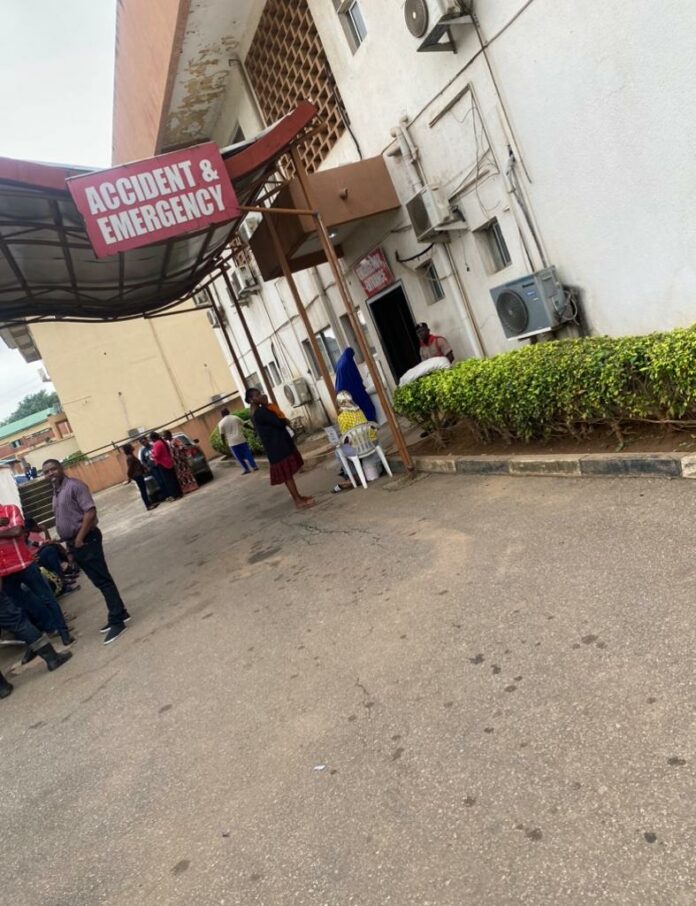The shortage of bed space in the emergency units of some public hospitals in the Federal Capital Territory (FCT), combined with the ‘incessant’ doctors’ strike, has had a detrimental impact on healthcare delivery. Consequently, numerous patients have been turned away from accessing proper medical services. The ICIR’s Mustapha Usman reports.
HAKEEM Dan Azunmi could not believe his eyes at the Garki General Hospital in the FCT. Some patients were helped out of their vehicles only to be told no one would attend to them. Others loitered in the facility, especially at its Accident and Emergency Unit. At its front doors were a group of people struggling to gain the attention of the medical staff, who appeared overwhelmed.
Hakeem’s brother, Jamiu, was sick and seeking treatment at the facility. He had waited for over two hours, but no one attended to him. The doctors were on strike, putting more pressure on the health workers, as patients and their relations competed to have their attention.
Besides the dearth of human resources, The ICIR observed that the facility lacked adequate bed spaces. This, the hospital argued, was not due to inadequate bed space but the small capacity of the ward.
For instance, the Emergency Ward for adults only had four beds separated by cotton and another two in a small room.
Lucky patients got space after queuing for hours. There was also a small room for treating minor injuries, and another called the ‘Resuscitation Ward’ outside the adult emergency room.
Hakeem, alongside three others, had just driven in from Wuse District Hospital, another public hospital a few kilometres away, where a young nurse turned them back. The nurse attributed her action to the strike and many patients waiting at the facility.
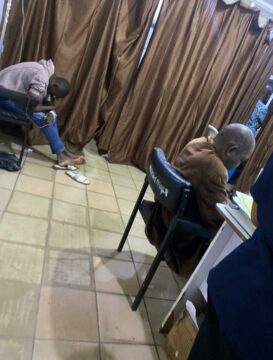
“The situation is terrible,” Hakeem said as he walked out of the Garki emergency unit, searching for his driver.
“They did not even check the patient and the scan we brought,” he stated.
The Nigerian Association of Resident Doctors (NARD) had, on Wednesday, July 26, embarked on strike to air their grievances over the Federal Government’s failure to meet their demands. The strike followed the expiration of a two-week ultimatum they issued the government earlier.
The doctors downed tools for two weeks, putting the lives of many patients at risk.
The combination of the now-suspended strike by the doctors and an acute shortage of hospital bed space culminated in a dire situation for patients seeking medical attention across the FCT.
The doctors posit that their strike was for the public good, arguing that their welfare and improved health infrastructures would translate to better service delivery and reduce brain drain.
Rejected in Wuse, Garki due to inadequate bed spaces, Maitama out of service
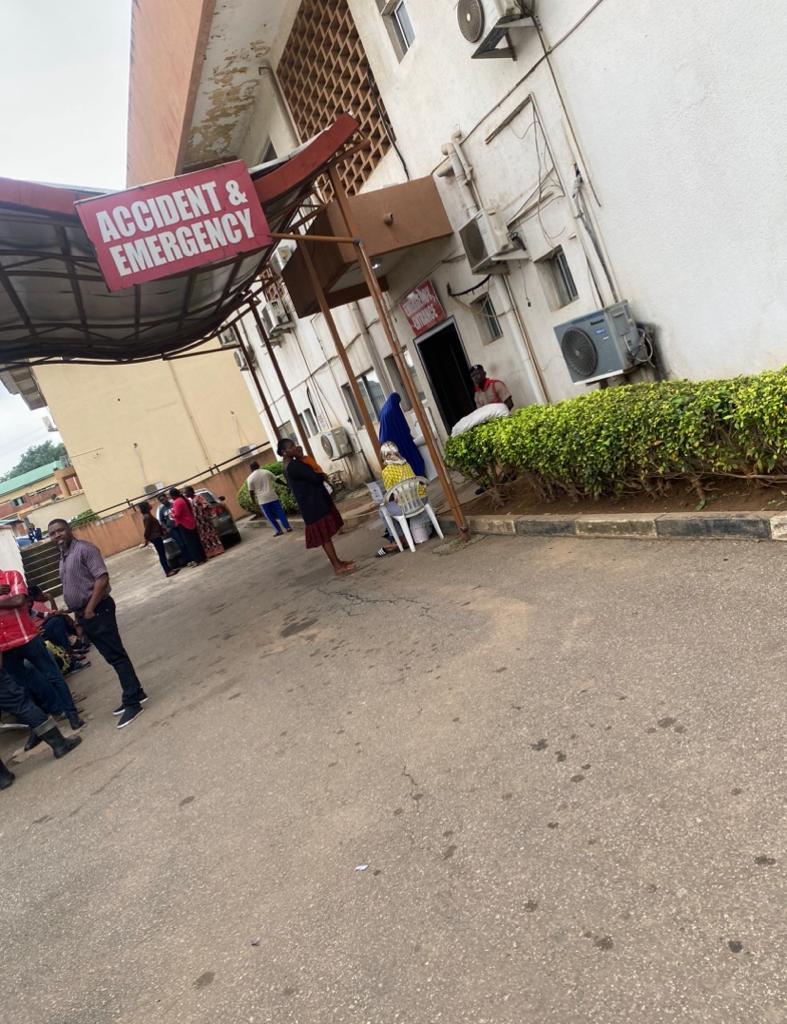
Eburire Akpo’s father, Emmanuel, was unconscious in the early hours of Monday, August 7, which led the family to rush him to Garki General Hospital. While the hospital had been like a “family hospital” for Akpo, the perception changed that day because the facility couldn’t admit his father but referred him to a private hospital.
Because of the unfriendly situation at the hospital, Akpo took his father to Wuse District Hospital, hoping to get the care he needed. However, the situation in Wuse was the same as Garki’s as he could not secure a bed space for his father.
“We then went to Maitama Hospital, but it was out of service,” said Akpo as he bemoaned the unfortunate situation across the country. “It was later in the evening that we secured a bed space in Garki hospital since 5:30 a.m. that we had set out.”
Due to the inadequate hospital beds at the emergency unit, patients queue to get the health workers’ attention, leading to overcrowding at the unit’s entrance.
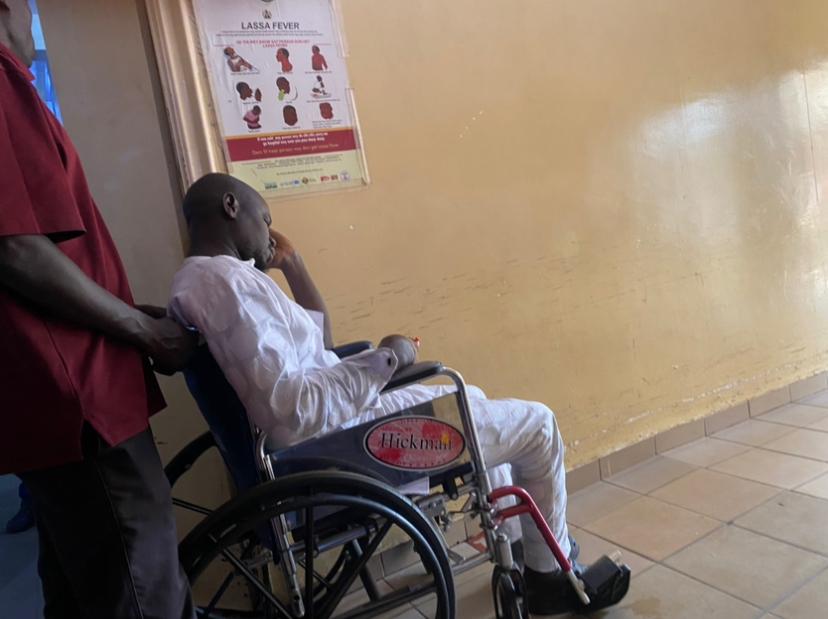
This situation mirrors other patients’ plight as some who could not wait because of their condition were referred to private hospitals which charge exorbitant bills.
The ICIR also met another patient who had to wait more than two hours in Wuse District Hospital before being wheeled out to Garki Hospital because he would not be attended to.
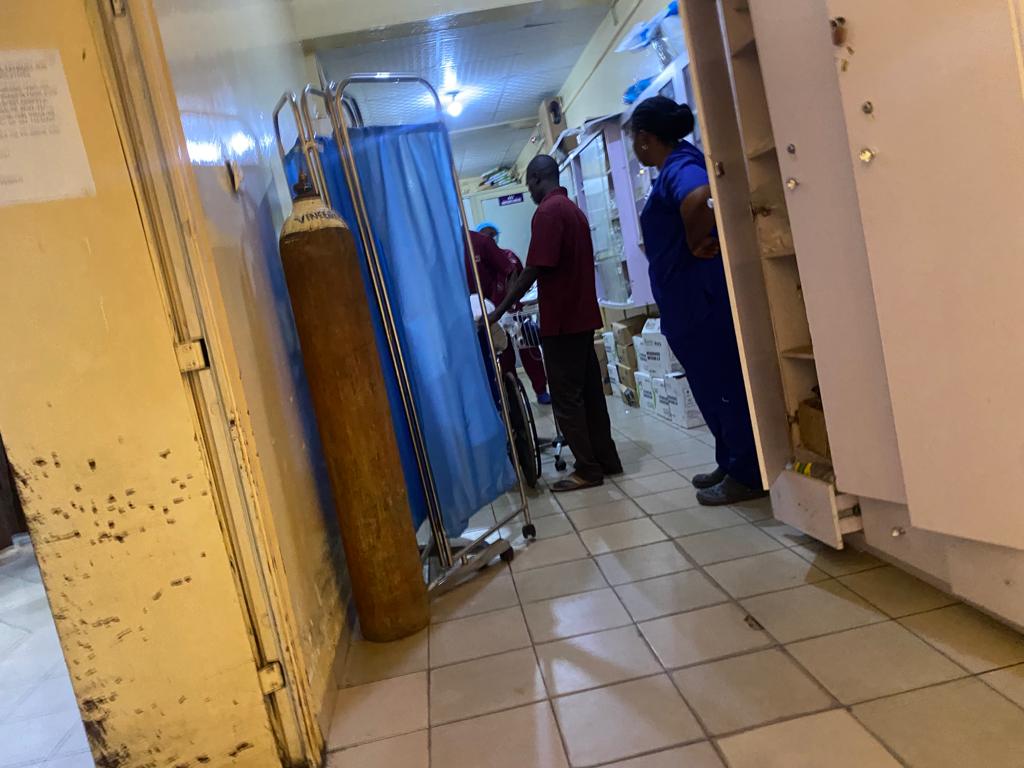
Meanwhile, at Garki, the patient was not lucky to get a bed space and had to be attended to in a wheelchair in the corridor of the emergency unit. The medical attendants on duty placed him on a drip and gave him other first-aid care.
His guardian told the reporter that the patient had been sick for days without getting attention from the hospital due to the strike. He said they had visited Wuse Hospital more than two times before leaving because nobody attended to him.
In Garki Hospital, only six-bed spaces were in the adult emergency room, while Wuse has eight-bed spaces earmarked for emergencies.
At least, check if she’s alive, guardian urges nurse on duty in Asokoro
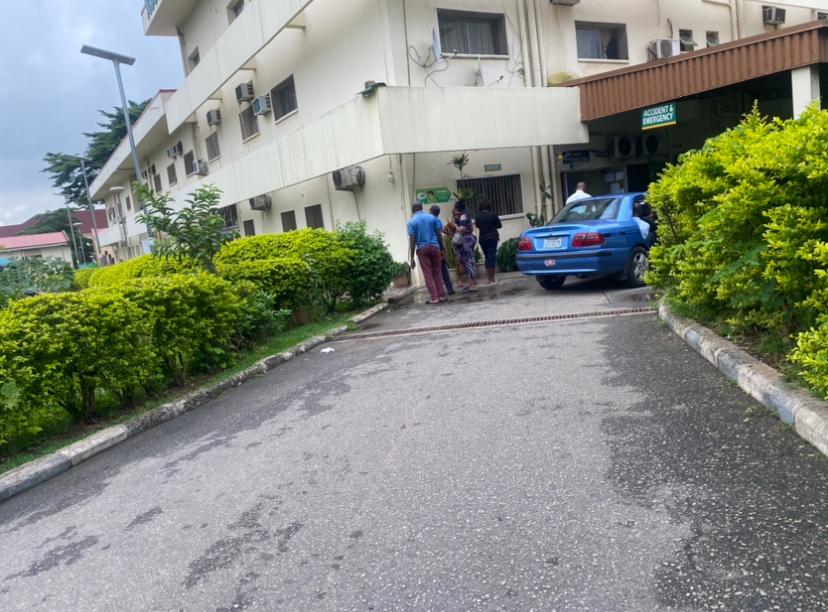
On a rainy Friday afternoon, the atmosphere at Asokoro District Hospital was tense as a guardian of a female patient urgently called for a nurse’s attention. The female patient was unconscious in a car and needed to be checked by the health worker, but the health workers on duty told the guardian that the doctors were on strike.
The guardian subsequently pleaded with the nurse, in a very pitiful voice, to at least check if the patient was still alive. Addressing The ICIR, the guardian decried the situation, adding that he never anticipated an emergency unit would lack doctors.
Meanwhile, the patient was attended to inside the car that brought her nurses on duty.
Amidst this, The ICIR discovered other emergency cases couldn’t be properly attended to at the hospital due to the industrial action and inadequate bed space.
Uba was one of the six individuals who brought in a man in his early 20s. The patient was rushed in after he was involved in an accident around the Asokoro axis. He was left stranded in the lobby area of the hospital’s emergency unit.
“He has been inside the car for 10 minutes, but they would not take him in. Even after we pleaded with them, they only said they would treat some of the minor injuries because the doctors that should attend to him are on strike,” Uba said.
Situation the same in Kubwa Hospital
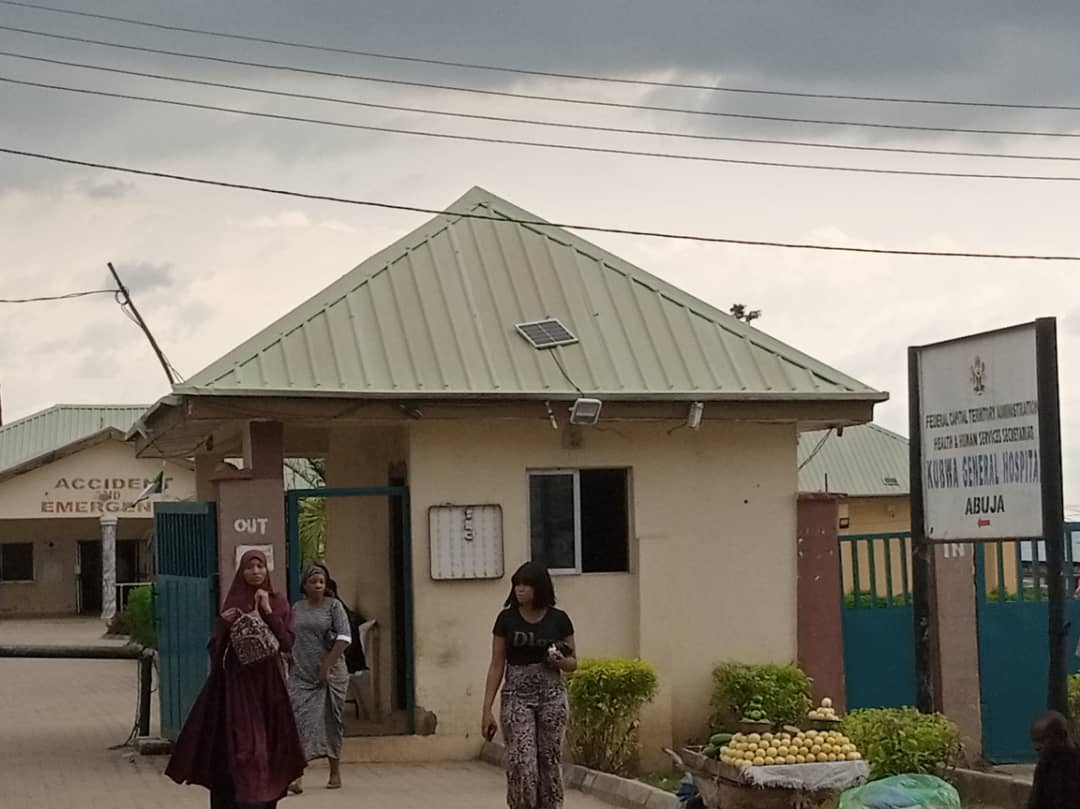
On Saturday, August 12, The ICIR visited Kubwa Hospital to assess the situation of the emergency/unit. Patients and their relations were seen loitering around the premises while some were sent back and asked to report back on Monday.
The waiting patients criticized the hospital management for inadequate bed spaces. Some of them, like Fatimah, who spoke to The ICIR, stated that the doctors were not attending to them due to the NARD strike.
Although the NARD had directed its members to resume work after it had suspended the two-week-old strike a day earlier, The ICIR confirmed that some patients who visited Kubwa Hospital were sent back home.
Kadir Fatimah lay helplessly on an iron chair. She could barely speak loudly as her body shivered from the cold. Her face looked pale, showing the severity of the illness.
She explained that she had been sick for some days before visiting the hospital but could not get her desired treatment.
“They did not give me a card. They asked me to wait, which I did for some minutes before telling me and others to return on Monday. I tried explaining to the nurse, who was attending to people, but he said the doctors were not at work.”
What the authorities had to say
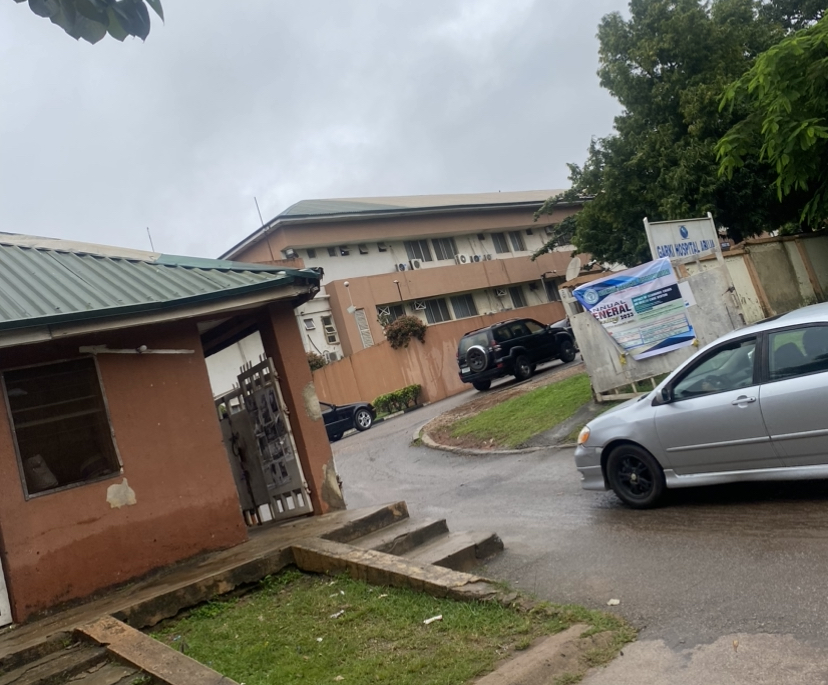
When confronted with our findings, the Secretary of Kubwa Hospital, Omolade Omoniyi Johnson, explained that the government’s inability to implement or agree with Doctors’ associations, leading to incessant strikes, always affects healthcare delivery in the hospital.
The “National Association of Residents Doctors and NMA are the ones that normally go on strike. So it normally affects us because during that period…you know, they are the majority and they have a very strong association.
Speaking on inadequate bed space, he argued that the hospital does not suffer from a shortage of beds but rather lacks a spacious room to accommodate as many beds as needed.
“It’s not inadequate bed space, it’s based on the capacity of each hospital. What the problem is the rate of the population trooping to this place. People come from Karo, Maraba and Nyanyan to this place because it’s easier for them.
He also stated the hospital always filled up and often witnessed around 100 or 50 people seeking emergency services.
Similarly, on Friday, September 8, the Garki Hospital Clinical Director, Director of Operations, agreed with The ICIR findings, stating that the hospital sometimes refers patients to another hospital when the emergency unit is filled up.
He explained that emergency needs are meant to be attended to on time. “We refer the patients to another hospital; that’s the standard,” he said. “As long as there’s no bed space, we tell the person to go to another hospital that has space. We can’t keep an emergency case, because if he dies while waiting, it’s not nice,” he added.
He also contended that the hospital possessed an ample number of beds, yet it was operating at full capacity, noting that the situation is not a matter of insufficient bed availability; rather, the hospital is currently accommodating its maximum bed occupancy.

Meanwhile, when The ICIR disclosed its findings to the Asokoro hospital secretary, Angelina Effiong, she referred the journalist to the Hospital Head Clinical Services.
The head of Clinical Services, however, asked The ICIR to provide its contact information for possible appointments, stating that they are busy and can’t provide necessary information on the situation.
In Wuse Hospital, efforts to get the Hospital secretary to speak on our findings proved abortive as she did not want to speak on record.
In an attempt to seek the reactions of the government officials in charge of the FCT Healthcare delivery, The ICIR reached out to the FCT Director of Health, Abdulrahman Sadiq, but the efforts proved abortive.
All calls directed to his phone line were not picked while text message was also not returned.
On Friday, September 1, The ICIR visited the Department of Health Federal Capital Territory Authority but was referred to the FCT Hospital Management Board’s Public Relations Officer, Samuel Winnie.
Upon arriving at her office, this organisation discovered that she wasn’t on seat and had to make a phone call to reach her. However, she declined to comment, stating that a letter should be sent to the Director of FCTHMB.
Hospitals poor, dilapidated – NMA
The Nigerian Medical Association (NMA) FCT branch said Public health facilities in the nation’s capital were dilapidated states, adding that the doctor-population ratio in Nigeria kept decreasing over the years due to the failure of the Federal Government to prioritise healthcare.
Its chairman, Charles Ngwuanyi, said “When you tell me that they don’t have bed spaces in hospitals, even if there are bed spaces, who will look after them? Yes, I know there are no bed spaces because the facilities are low and don’t match demand. And the facilities are dilapidated. They are not meeting the minimum standards for reasonable care in a decent society and environment. And the whole thing is borne down to healthcare finance.
According to him, Nigeria has consistently failed to meet up with the Abuja Declaration for allocating 15 per cent of the annual budget to healthcare. He explained that the country “has never gone beyond five per cent for the annual budget allocated to health since then.”
Speaking on how the Federal Government’s failure to fulfil its promises and meet doctors’ demands is affecting healthcare delivery, he said there were less than 25,000 registered doctors in the Medical and Dental Council registry of Nigeria.
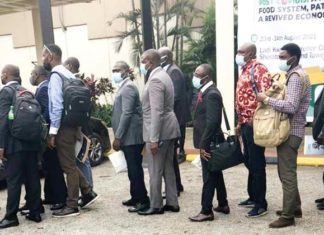
“If you go to the MDCN’s registry, there were up to 110,000 doctors registered and practising in Nigeria (in the past), but as I speak to you, they have less than 25,000 that are registered and paid their practising licence fee, and this number is decreasing.
“The problem is premised on doctors, nurses and other paramedics leaving the country. It’s not about clamping down on the salaries of doctors. We are simply asking you to pay us what you promised to pay. And then you’re further threatening them.”
According to him, the action of the Federal Government has made matters worse.
“Let me tell you that the government’s action has made matters worse. And if you check this data in the next year, you will see that about 20,000 doctors are left behind to look after more than 220 million people. All the young doctors, residents and erudite doctors are leaving, but the number of patients is increasing. “
Usman Mustapha is a solution journalist with International Centre for Investigative Reporting. You can easily reach him via: [email protected]. He tweets @UsmanMustapha_M

